FRIENDLY FIRE
Michigan Veterans Harm Reduction Summit
David Healy
Thanks to Derek Blumke for asking me here today. It’s a great pity not to be there in person. There is a fabulous group of speakers. Most of us sense that US Vets, more than any other group in society, may be able to move things forward in a way that can hugely help all of us.
A prerecording of the lecture is here along with text and slides below. This post goes hand in hand with Antidepressants and Homicide.
Slide 1: The usual story is modern medicine began in Europe with American doctors visiting European centers to learn how to do the job. This is wrong. Modern medicine began in Boston in the 1840s with the discovery of anesthesia.
Anesthesia brought ethical issues – can it be right to do wrong in a good cause? Can it be right to mutilate or poison?
Politics is Medicine on a Grand Scale was a famous phrase from the time – this talk could be called War is Surgery on a Grand Scale.
Slide 2: Anesthesia might not have created medicine had it not been for the American Civil War. Both sides, North and South had disbanded their medical corps before the War – there was no obvious need for medics in a War. But the North in particular recruited young men, who enabled by the availability of anesthesia and training on the job created modern surgery.
They were facing injuries never seen before from rifles and snipers – injuries from a distance rather than hand to hand combat – leading to shattered arms and legs where amputation was often the answer. These young men pioneered open chest, open abdominal and plastic surgery.
Morphine came into use – and syringes. Hygiene was put in place.
The Red Cross was invented along with battle-field triage and above all hospitals. What were called hospitals before were places you went to die – they might look after your soul but did nothing for your body.
This does not look like a hospital. This is Quincy. There are 17 Quincys in the US. This one is in Illinois on the Mississippi and this building was the second hospital there. When very few cities had hospitals, by the end of the War, Quincy had 5 hospitals. There were floating hospitals off the Carolina coast. Surgery happened near battlefields with the patient then moving to a network of hospitals behind the lines.
After the War, the Veteran’s Administration was set up – in great part to provide housing for troops disabled in the War.
The floating and converted hospitals were closed down, but the North began building substantial hospitals in every major urban area across the country. These did surgery. Medicine in the sense of giving drugs didn’t exist. By 1900 America had more hospitals than and was doing more operations than the rest of the world combined.
The US also created Casualty or Emergency Depts – on urban grids. Ambulances brought you to the closest Casualty Dept whether it was in a Jewish, Protestant or Catholic hospital.
America also eradicated Tuberculosis, the greatest killer, more effectively than anywhere else – long before any meds came along.
The Army with the least deaths from Disease or Injury won Wars. The Germans copied the Americans and beat the French. The Japanese copied the Germans, and in the 1904 War against Russia, Japan became the first country to have less troops killed by disease than by the enemy – and they beat the Russians.
Slide 3: Military input continued in WWI and WWII, with prosthetics and rehabilitation medicine, transfusions and fluid replacement, a use of vaccines and the management of dysentery.
This image shows traditional gender stereotypes but War changed these – men were having nervous breakdowns on the battlefield and women ran hospitals at home and did the surgery..
WWII led to antibiotics, anti-malarials, and an explosion of all the drugs we now have including antihypertensives, hypoglycemics, steroids, psychotropic drugs and others.
The American military introduced computers, which led to managers, the Internet, robots who now do most of our operations and increasingly the possibility to operate from distances which will be needed when we take to space.
America led the way in building health systems that worked. When I entered medicine, US healthcare was the best in the world and Americans had the best life expectancy in the world. You made going into medicine attractive for me. Until recently you figured you were doing the same for healthcare – but something has gone wrong.
See The Decapitation of Care – downloadable from Announcing a Birth.
Slide 4: We once viewed history as driven by the Gods. And then Great Men. But for a century our technologies have clearly driven history forward – especially our health history. Innovation is the new buzzword. If it’s innovative we assume it must bring benefits and we climb on board.
Innovation is a tricky word – as the rest of this talk will make clear. What happens when the innovative technique is a new form of propaganda? Are we guaranteed to get progress from this kind of innovation?
Slide 5: In 1982, Zelmid launched. the first of an innovative new drug group – the selective serotonin reuptake inhibitors (SSRIs). We had known for 20 years before this that previous serotonin reuptake inhibiting antidepressants could cause suicide and homicide. We also knew there was nothing wrong with the serotonin system in people with any nervous problems. See Madness, Normality and Antidepressant Dysregulation.
Slide 6: Arvid Carlsson, whom you see here, created SSRIs and Zelmid. Prozac was the fifth SSRI. He did this by listening to people like you tell him that older drugs acting on serotonin had a serenic effect. He recognized that like LSD, which acts on normal serotonin systems, SSRIs could produce good and bad effects. They would suit some of us and not others – even make some of us suicidal or homicidal.
Slide 7: We ran an experiment in this Unit 25 years ago to test Carlsson’s idea out. We gave Zoloft or a non-SSRI to healthy medical and nursing staff to see if they could pick out the serenic effect of an SSRI from other antidepressants. Arvid Carlsson was right but 1 in 10 volunteers became suicidal or homicidal.
Even more interesting, within 48 hours, patients in the unit who knew nothing about the experiment could tell which staff members were on an SSRI – they could tell by their body language and facial expressions. By observing us they knew more about what was going on in us than we knew about what was going on in them. They were better at looking more closely at us and other people than we were at looking at them.
It’s the same with you – you know more about these drugs than the people dishing them out to you. To adopt an old 1960s idea – the asylum has gone crazy.
Slide 8: Back in 1992, I chaired the launch meeting for Zoloft in the UK. I gave what seemed like an obvious talk. Serotonin is more primitive than Estrogen and if we now have drugs that act on it – we are going to hear things we have never heard before if we look and listen.
This is not the message Pfizer wanted. Their message was we know all about Zoloft. The only job for a doctor is to prescribe it and for a patient is to take it.
Slide 9: This is caught in this fabulous cartoon from 30 years ago. SSRIs can be good serenics but were never meant to be antidepressants – they have to be given in toxic quantities to show an effect in depression. But a benzodiazepine dependence crisis in the 1980s led companies to think it would be better to pitch SSRIs as antidepressants which doctors didn’t think would cause dependence.
So cases of Valium and Ativan had to be converted into cases of Prozac and Zoloft. Depression had to be reinvented as a Vitamin Serotonin deficiency that would be corrected by these little pills. Marketing – propaganda that is – had become so good Pharma could do this easily.
For pharma, the key thing is the consumer must have no side-effects. The consumer is the doctor. He consumes by putting pills in your mouth. Companies aim to make sure doctors don’t have a thought in their head not put there by them or their competitors.
Slide 10: Companies knew you who took SSRIs were going to have serious problems ten years before these drugs came on the market. In healthy volunteer studies, volunteers like Traci Johnson committed suicide – others became aggressive and hostile. This is all linked to a profound emotional numbing and akathisia these drugs cause.
The marketing challenge for companies was to get doctors to just not see the problems you were having on these drugs.
Slide 11: Propaganda has been an area in which the military have been particularly effective. What you need to remember is that through to 1980 the pharmaceutical industry was relatively new and small.
Up to 1989 or so, American soft power was greatest in the health domain. Helping pharmaceutical companies may have looked like a way to bring the free market to the whole world. Or maybe even then, the US military were aware of the looming risks of biowarfare.
Any way, Pharma learnt all about Fake News pretty quickly. It’s one thing to deploy Fake News in Wars but in Healthcare?
Slide 12: In a Pfizer 1990s trial, a man became so akathisic he poured gasoline on himself and set fire to it intending to kill himself. He died from his burns 5 days later and was coded as death by burns rather than death by suicide. The coding of adverse events in trials is the first act in the creation of misinformation. In this case, a paper trail lets me find out what the medical literature and reports to FDA don’t tell you – that this should have been coded as suicide.
Slide 13: In 2001 GSK published the results of Study 329 a study of Paxil given to depressed teenagers, in which after two weeks on Paxil one 15 year old ended up out on the street waving a gun around and threatening to kill people. He was picked up by the police and brought to hospital – there should have been a paper trail letting people know what happened but there isn’t for him or 3 other children taking Paxil in this trial.
FDA don’t know what happened in this case. See Children of the Cure. Industry had found and continue to use loopholes to hide events like this not just in antidepressant but in all trials.
Slide 14: In the studies bringing Prozac, Paxil and Zoloft to market, there was a serious excess of suicidal events on all 3 drugs and to manage this the companies moved suicidal acts from the washout phases of their studies into the placebo group claiming people in washout were on nothing, which was the same as being on placebo. This breached regulations but you can’t call it fraud because the companies say FDA saw exactly what we did and didn’t object.
Slide 15: Pfizer did 4 studies of Zoloft in PTSD. The results for men in all 4 were negative. There was a minimally positive result for women in 2 studies, which let FDA approve Zoloft for PTSD. As you see here, articles were written on these studies claiming the drug worked well and was safe – articles aimed at Pharma’s favorite journal – The New England J of Medicine. On the left you see Author TBD – To Be Determined. These articles like all publications on on-patent drugs is ghostwritten.
This is a Recovered Memory Syndrome – memories of benefits that didn’t happen. The greatest concentration of Fake News on Earth centers on the drugs our doctors give us. The goal of successful propaganda is to be invisible and masquerading as science, this is invisible..
Slide 16: In 2001, GSK published Study 329 of Paxil in depressed adolescents claiming it worked well and was safe in a high impact journal that generated lots of sales. A year later they submitted 3 negative studies to FDA asking to be licensed in teenage depression. FDA agreed the studies were all negative but still agreed to license GSK to claim their drug works for depressed teens and also agreed not to mention this in the Paxil label. Why would FDA do this?
Well if they mentioned Study 329 was negative GSK might have been sued for fraud and no-one wants GSK or any pharma company sued for fraud. GSK in fact did get sued for fraud – Children of the Cure.
Slide 17: Here are the published adult antidepressant studies. The black boxes are the negative studies. The rest look so good you’d be tempted to race out and get on these drugs. Especially Zoloft which most experts say is the one to have – see the two white boxes 3rd from the right.
Slide 18: That was the published literature. Reports to FDA show over half of the antidepressant studies in adults and children are negative. One third of the previously published positive trials were in fact negative. Look at Zoloft. The regulations say there have to be two positive studies to license a drug – but there is only one for Zoloft.
Slide 19: Most of us figure FDA are here to look after us – the next best thing to having God keep us safe. They would not license a drug that causes suicide or homicide or serious sexual dysfunction – so if this is happening to you it can’t be caused by the drug.
But that’s not the case. The name Food and Drugs Agency tells you what is involved. FDA are regulators – bureaucrats. The reason Britain tumbled out of Europe started the day they joined when European regulators told them their favorite chocolate could not be called chocolate – it didn’t have the right amount of cocoa solids.
In the same way faced with a lump of yellow stuff that might be butter – FDA check it animal fat content. If the lump meets that a company can call their product butter. FDA do not say this is good chocolate or whether butter is good for you – when companies meet a standard FDA let them use words.
It’s the same with antidepressants. If a drug meets an agreed standard – 2 points on a Depression rating scale – FDA will let a company use the word Antidepressant. They are not saying this is a good antidepressant or antidepressants save lives – they don’t save lives. The trials indicate more people die as a result of SSRIs than are saved by them. Almost none of the trials used to license drugs, show the drugs saving lives.
Slide 20: FDA’s job is to keep the paper trail in good shape and preserved in the filling cabinets. It is not to look too closely at it and above it is not their job to think.
Slide 21: Company marketing aims at persuading Docs SSRIs are Magic Bullets that go to where the problem is and exterminate the enemy, leaving the rest of your patient’s body untouched with no interactions with any other meds. I could show you many more Images like this for medicines – the more precise our weapons get – like Cruise Missiles – the more Pharma love the imagery.
Managing the medical literature enables marketing to create narratives like this that take control from you and your doctor and hand it to pharma.
Slide 22: But when Arvid Carlsson created SSRIs he didn’t create a Magic Bullet – he made a therapeutic principle – that can be put to good use if we get the right principle for you.
Laxatives and constipation come in 4 different kinds. The skill lies in figuring which therapeutic principle suits you – something your grandmother and older doctors used to be good at. But once a company gets licensed to call their drug a laxative, their interest lies in getting everyone with constipation on it. They don’t care if you are also on the other 3 types, but you should care because this is how we get treatment resistant constipation.
Listening to you, Carlsson heard that SSRIs could make some people serenic – less anxious. One of several different ways to manage nervous problems – they suit less than half of those put on them.
Listening to you Carlsson heard that some folk with OCD do well with SSRIs but some don’t and become suicidal. Some of us said we did better when we stopped SSRIs and began smoking. So he ran a study of nicotine for OCD and found it suited some of us much better than an SSRI.
Nicotine can be a therapeutic principle for OCD. What about safety? Its seems no more likely to cause cardiac problems in men and premature death than SSRIs do and much less likely to cause weight gain, diabetes, bone fractures, sexual dysfunction and most other problems than SSRIs. Taking a good cigar and glass of wine every day as our poison is probably less likely to harm us than the growing cocktails of poisons we increasingly take every day.
Therapeutic principles hand the narrative back to us. Only you – not FDA, your doctor or companies – can compare the benefits and hazards of nicotine and SSRIs for you. No one else should get in the way of you doing this.
Slide 23: Let me give you another way to look at it. You hope your doctor is like the pilot in the middle who if she spots something going wrong on she reports it and the powers pay heed to her because they know that otherwise neither she nor her colleagues will fly again. She has an incentive to put things right – if you don’t get from New York to Seattle – she isn’t going to either.
The lady on the right is a banker. At the time of the financial crisis she and her colleagues were selling us mortgages they knew could explode in our faces and destroy our lives – but got paid if they kept quiet.
The doctor on the left is like the banker not the pilot. She has a fiduciary duty to you and should know, the grenade she is handing you is likely to blow up in your face and might destroy your life. But as long as she keeps quiet, and especially if she refuses to take your side and agree that some drug has harmed you – she will continue to be paid. She has no incentive to do the right thing.
She is in a state of moral hazard. You cannot depend on her. She is the weakest link in the system and perhaps your way put things right.
Slide 24: The man in the middle never had any nervous problems. Mildly stressed about his taxes, he was put on an SSRI. During the week on the SSRI you can see him begin to wonder is he going mad – will he end up locked in hospital. His wife gets friends who know him in to help her work out what to do – they see the most agitated man they have ever seen – pacing up and down, tearing his hair out. He has akathisia. No one expects what happens next. On the 7th day he wakes up gets a mallet and batters his wife to a pulp.
He is brought to hospital. The SSRI is stopped, and he returns to normal. I write a report – he is not guilty and should be let walk free from court. His lawyers have a better idea – take a plea deal. He gets a year. He went into hospital with everyone where he lived figuring he was innocent. He comes out a convicted murderer and has to leave where he has lived for 50 years and even move country.
The gun on the right is James Holmes – the Aurora Batman killer. A shy inhibited university student whose psychiatrist puts him on Zoloft. He becomes disinhibited – begins to flirt with women and buy guns. He keeps a diary where he records his growing Manic Delirium. He tells his doctor she would lock him up if she knew the thoughts in his head – she says he is responsible for his thoughts. He shoots 12 dead and injures 72 others.
Many other details point to his Zoloft causing this and I write a report saying he is not guilty. But his public defenders don’t use it – they likely agree with the prosecution that one juror says he shouldn’t be executed. For lawyers that is a victory for them. Not for him – maybe not for you.
Slide 25: Pfizer were unlikely to want my report to come into evidence. It contained things like this. Thirty years before Aurora, Pfizer ran a healthy volunteer trial in a group of women – all of whom became agitated on Zoloft. Their diaries noted growing agitation and aggression. Every single one of them dropped out by 4 days in – the control group were all fine.
Slide 26: Pfizer concluded Zoloft clearly caused all this. SSRI type drugs are well-known to cause problems like this. The reports from the volunteers are reliable.
Patient began to verbalize feelings
of killing other people and then himself.
Patient looked more anxious and depressed than at baseline,
even though this was not reflected in Hamilton Scale.
Slide 27: Here is a snippet from an SSRI clinical trial. The usual rating scales showed this man had a good response, but the doctor talking to him realized what was going on in him was at odds with what the rating scales said.
How often does this happen in SSRI clinical trials – in up to 1 in 20 people. In our Zoloft healthy volunteer trial – it was 1 in 10 and in Pfizer’s Zoloft healthy volunteer study it was everyone.
Slide 28: Nicholas, Thomas and Emily and their mother Marilyn. Marilyn had been viewed by all who knew her as Superwoman, Chief Nurse in a busy Chicago hospital Ward, wife to an over-busy, increasingly not there doctor, juggling 3 children, involved in many community projects. After Emily’s birth she was unhappy at weight gain. Prozac, which then had a reputation for weight loss didn’t help. A stimulant helped her lose weight and feel better
In 1998, worried she and her husband were drifting apart she consulted Dr Hubbard. Both agreed this was not a problem a pill could solve. Weeks later, as she was still stressed, he suggested Zoloft could do no harm. Over the next few months the dose was increased 4 times – after each increase she slept less well, was more anxious, despite a benzodiazepine being added and had other signs of SSRI toxicity.
Dr Hubbard thought he had helped when they got to 200 mg and she reported feeling less concerned about the divorce. Her husband at this point was openly dating another woman.
On March 4, 1999, Marilyn called the Emergency Services to tell them she had tried to kill herself and had killed her children – could they come to the house?
On remand, Marilyn was tanked full of drugs. Interviewed by experts who had no expertise on drug related issues, she mentioned it would be better for her husband if she and the children were just no longer around.
No-one explored if Zoloft’s sexual dysfunction and libido killing effects might have made a tricky marital situation worse. No-one asked for the drugs to be stopped to see what she was like.
Illinois did not then allow a Prescription Drug Induced Defense. The jury were faced with a choice between a bitter woman who killed her children as revenge on her husband or mental illness.
The prosecution had an easy job. They asked all her friends had anyone noticed any signs of mental illness. No one had. The only person who said anything different was her father who said that for the last few months she was not the daughter her family knew.
The defense did not have the possibility to introduce the Pfizer documents you’ve just seen or the fact that Zoloft did not meet FDA standard for approval.
It took several years for her to get the meds stopped – she was fine of them. It took a decade for her to think Zoloft might have played a part. She has now been in jail for a quarter of a century.
Marilyn didn’t get a Fair Trial. I don’t think you could either and if you can’t get a Fair Trial, you can’t be getting Good Care.
- Would a jury accept that the NEJM and other leading journals publish nothing other than ghostwritten deeply misleading articles on meds. That the greatest concentration of Fake News on Earth centers on the drugs your doctor gives you.
- Would a jury like you believe that FDA would let a drug that can cause homicide on the market?
- Will jurors be able to credit that Dr, Hubbard, your doctor, who seems a nice man will say what you hear him say because his lawyer has told him – blame the drug because doctor if this person walks you may be charged with involuntary manslaughter.
Slide 29: When recruited you were mentally and physically fitter than the rest of the population. All things being equal, even if some of you are now fitted with prostheses, that should still be the case. But it’s not. Why not? And what can you do to put it right?
Slide 30: This slide brings out how you are being disabled. Healthcare costs are ballooning and industry have a simple message – it’s because you wait too long to start treatment. We should put people on meds to manage their risks from years beforehand.
It might be fine to eliminate junk food and salt and get fit but taking drugs that are more dangerous than nicotine and alcohol when well is not a good idea.
Very few medicines save lives the way Surgery does – because – as Goldman Sacks say – Saving Lives is not a Good Business Model for the pharmaceutical industry.
The surgery you get still mostly fixes something wrong. You get given meds when you are healthy. If put into the 6 week trials that bring these drugs on the market, nicotine and alcohol would likely have less side effects than almost all of what you guys are increasingly given.
Bisphosphonates to thicken bones cause the most serious fractures you can have – a not unsurprising result of abnormally thickening bones.
Statins – to supposedly keep your arteries young – don’t save lives and cause serious muscle problems.
Antihypertensives – that very few people need. Unless you have severe blood pressure problems these won’t save lives – they will keep your doctor happy but not you.
Anti-Allergy or Asthma Drugs like Singulair – which cause depression, suicidality, homicidality, dependence and other neuropsychiatric problems.
Antidiabetics – these sound like they are giving you some control. They aren’t. Read the leaflets – they will tell you not to go on a keto diet or try to lose weight while on these drugs because this can cause hypoglycemia and dementia. You think you are taking control but you re giving up control when you start any of these meds.
Psychotropic drugs – you’d be better off taking nicotine or alcohol than your current cocktails.
Slide 31: I’m Irish and we have always been pro-America. I went into medicine because in the 1970s going into the 1980s, you had the best life expectancy in the world and there was a real sense you were making the world a better place physically and mentally.
In 1980, you began to be given prescription drugs when healthy rather than ill, and life expectancy began falling and has been falling ever since. This graph is all before Covid. First you fell below other wealthy countries but now you’ve fallen behind Cuba and lots of other countries.
If you had told me in 1980 that this would happen I’d have thought that’s just not possible. And what’s happening is worst of all for Vets because we figure we need to give as much of the very best treatment as possible.
Slide 32: Until recently, the most solid finding in the social sciences was the people in their middle years claimed more disability benefits than younger or older people because they had muscle or skeletal injuries from hard physical labor. In the last decade this has changed. Now 18-35 year olds claim more disability than any other age group. Diagnoses like ADHD, Autistic Spectrum Disorder, Depression, Bipolar Disorder all disable them. The meds to go with those diagnoses also disable them.
You were once a Band of Brothers – a team – with a bunch of different skills shared out among you. These differences between you – between us – have been converted into illnesses and are being medicated
As a result, national debt in most countries in escalating rapidly and unsustainably and social security systems across the Western world are on the verge of collapse.
Slide 33: Being stuffed full of meds is risky and dangerous. It takes real skill to defuse this Hurt Locker situation. Who is the skilled person who is going to do it? You are.
When it comes to being on meds – you are in a privileged position and the person most capable of doing the science. Any doctor or whoever you turn to for help needs to work with your observations – not his or hers. Science is about coming to a consensus – as a jury does in a legal case. It is not about converting you to something the system the doctor works in wants you to end up thinking.
You need to insist on the validity of your hunches and if you are not being listened to and worked with on your terms – change doctors.
Slide 34: The last thing you need is Sanctuary Trauma – a term UK Vets introduced me to. Increasingly if we have a problem and turn to the people we are told is there to help us, they turn out to be our greatest problem. This doesn’t just apply to Vets – it applies to all of us these days.
You didn’t sign up to defend the least free market on earth. To defend a lie. What can you do?
Maybe call into Eric Rubin’s office, the editor of the NEJM, who gets $750,000 per year it almost seems in order to leave his backbone outside his office door. You might tell him he is contributing to the deaths and injuries of Vets and needs to up his game.
You might visit get Governor Pritzker in Chicago who has been sitting on Marilyn Lemak’s clemency case and get him to engage. You can tell him – this is not just about the fact that she didn’t get a fair trial, its about the fact Vets can’t get fair trials and if you can’t get a Fair Trial you can’t get good clinical care either – the two go hand in hand. Suggest to him, there might be votes in this.
This all about reconfiguring a System that worked pretty well till about 30 years ago. You might want to Aim Higher that Rubin or Pritzker.
To adapt a phrase beloved of the NRA, drugs don’t kill and injure Vets – prescribers do.
Prescription only was invented in 1914 to manage Heroin and Cocaine addiction. It now treats all of us as though we are addicts. It makes even someone like me feel I am doing something wrong when I go to a doctor. This is not the way to treat free citizens.
SSRIs are already available over the counter. Many antihistamines are SSRIs and can cause all of the problems that the antihistamines we call SSRIs can cause. You manage these just fine.
You stop a medicine that isn’t suiting you pretty quickly if it doesn’t suit you – uninhibited by some doctor who insists you have to keep taking them for weeks before you will feel the benefit – a doctor who might double the dose of a drug that’s poisoning you something you would never do or he would never do to himself – a doctor who gets reimbursed for keeping you on meds.
This doesn’t mean that you need to get rid of a doctor you like and trust. It means if I don’t make my money from controlling your access to these drugs, I have to make it from really providing you with something of real value – like honesty. Like what I really think of stuff you’ve been researching and are thinking about taking – or whether I really think the reaction you’ve come to me to check out is linked to your meds.
If we are working together using your experience and research, you can make my job a lot more fun and interesting. You are giving me a chance to look and listen and learn in a way I don’t have if my job forces me to tank you full of meds I would never take myself.
Aim High and really Shake the System – it needs shaking. American’s used to be good at systems – its time to fix this one. It’s time to Make America Honest Again. It’s not that you are any less honest than anywhere else – we are all in the same boat but American Vets are one group who might be able to get a beacon of liberty shining again.
Prior Veteran Posts
There have been a series of prior posts linked to Veteran’s issues on davidhealy.org and RxISK.org. The US based ones have been written by Johanna Ryan and the UK ones have stemmed from our links to Trixie Foster.
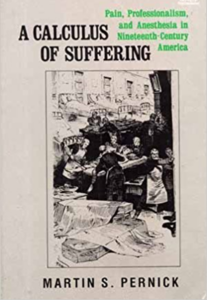

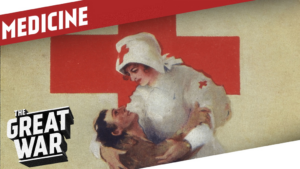

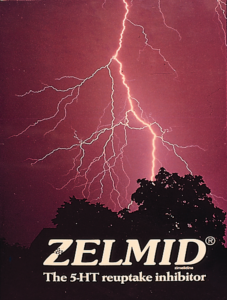
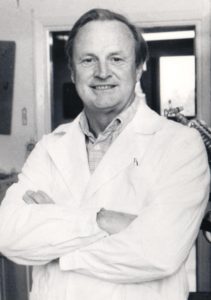

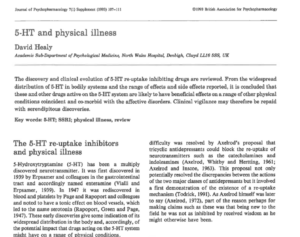
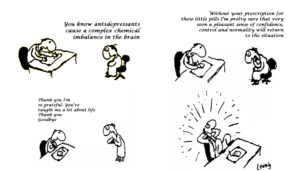
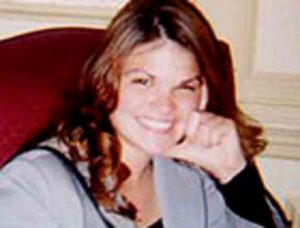
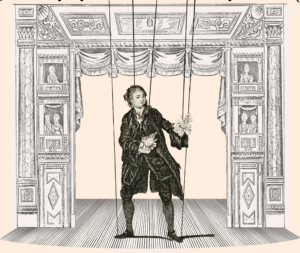


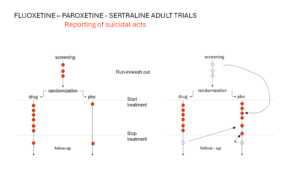
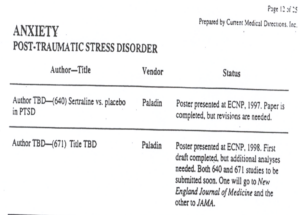
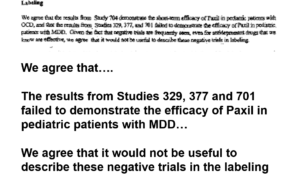
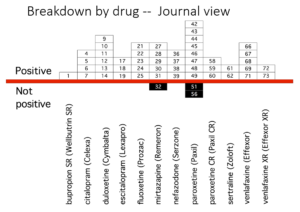
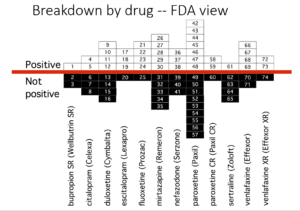
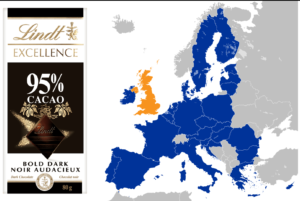
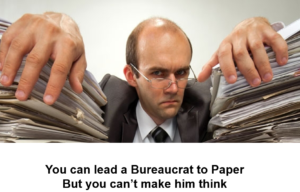
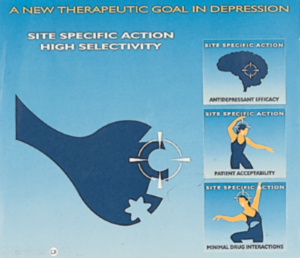
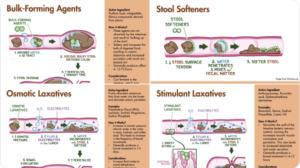


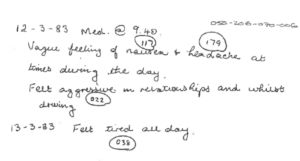
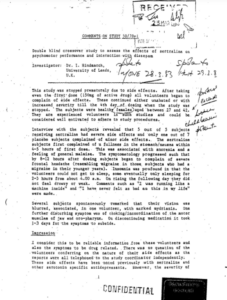
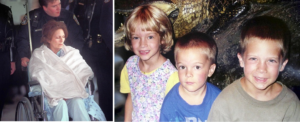

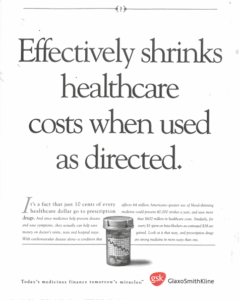
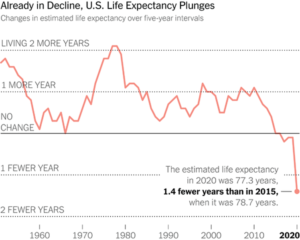
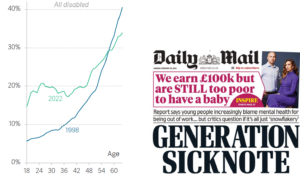

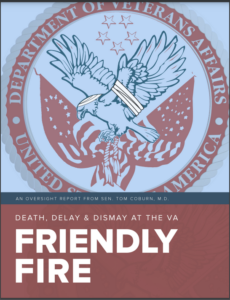
“Making America Honest Again”. Great concept. Would be welcome in our U.K. Health Care too.
let’s hope that the veterans use their power and influence, inspired by this moving and important lecture, to MAKE MEDICINE HONEST AGAIN.
At least the respected ex-military have now had the opportunity to become aware of AKATHISIA.
A word hidden from, and unknown to so many prescribers, including myself, until it was too late.
Thank you for another outstanding lecture.
Tim
Your idea about Making Medicine Honest Again might have been a better one – I was too focused on MA?A – as in MAGA – maybe MMAA – Making Medicine Accountable Again.
D
MAKING MEDICINE ACCOUNTABLE AGAIN would maybe achieve more progress towards safer prescribing and improved patient care?
Being held to account modifies clinical practice and motivates learning from adverse experience.
We could start by being prepared to apologise to those who have been harmed.
Not an admission of ‘guilt’ but an affirmation of care and concern.
Bringing in another one – MAHA
Let’s Make America Healthy Again
https://x.com/RobertKennedyJr/status/1846544812243050517
Hey, everyone
Get your hat here…
Excellent presentation here. If more people would follow your advice “to insist on the validity of your hunches and if you are not being listened to and worked with on your terms – change doctors” fewer would be harmed or prematurely dead.
I hope vets and the military will rally on this cause and my comments yesterday afternoon that they are the experts by experience (as I was the expert on my child), might similarly resonate.
I’m always learning something new from your blog, not just to apply to my advocacy and communications work, but also to more fully understand why my daughter had the symptoms she did. When I said yesterday she complained of throat problems, I didn’t know why this was until I read today’s presentation notes. Natalie even texted a friend, asking “what are those glands called on the back of your throat” because she said hers were swollen and she thought she had the flu.
Regarding organized action members of the military and vets might collectively take to reduce prescribed harm and improve their access to therapeutic care, that’s a million dollar question with answers remaining to be seen. From my experiences working in DC long ago for nonprofits, union HQ and the like–all of which are located on or near the Hill because all are political orgs regardless of their names or nonprofit status, contacting your elected representative is usually a waste of time unless it entails a large number of voters as a block, or those with very deep pockets for campaign contributions. Since the vast majority of campaign contributions come from pharma, politicians will likely continue turning a blind eye to this corruption.
But targeting ghost writing and fraudulent clinical trials, if successful in even initially small ways, could help reduce prescribed harms of all types, not just akathisia and disability and death primarily caused by psych drugs and drugs that cause adverse psychiatric symptoms. I wonder, has anyone sued or tried to sue a medical journal for publishing fraudulent and/or ghost written studies–studies that were a conduit to consuming a risky and ineffective product? Perhaps if more doctors were criminally held accountable for the harms their misguided prescribing caused, maybe they would explore such an avenue and/or include it in a defense case.
Kristina
Thanks for a great comment. Baum-Hedlund thought long and hard about suing a prominent medical journal but in the end opted not to. Pity.
Several people have tried to medical regulatory bodies look at the cases of doctors who let their names be put on ghostwritten articles but these bodies just bat it off – they only deal with doctors sexually molesting patients etc.
However New York State did sue GSK for Fraud. So it can be done if there is a degree of willingness. It would be interesting if some Vets arranged to meet Governor Pritzker in Chicago. Would he even agree to meet them?
David
RFKJr appears to have just that on his agenda – well, so he said. Since he now seems to have made a deal with Trump who, in turn, seems to be ahead in the polls, who knows? Kristina will have infinitely more knowledge and sharper instincts about this than I ever could-a US citizen who hasn’t lived there since childhood. But this is what RFKJr said in an interview with Dr Drew -amidst a heap of nepotistic references:
‘On day one of my Presidency I am going to call all of the heads of the medical journals and threaten them with a RICO lawsuit if they don’t stop lying to the people’.
‘Today is there’s no agreement on what information is – we’re all going to different sources because we cannot trust the sources that are there to actually provide us good information. The answer has become utterly corrupt New England Journal of Medicine American Medical Association are utterly corrupt, there’s nothing in there that can be believed. As soon as I’m elected (change of plan there) and appoint my attorney general, one of the first meetings that my attorney general is going to have is to call the editors and publishers of those journals into our office , the justice department when my FATHER used to work and tell
them that we are about to file racketeering cases against them for lying
to the public under any trust acts and under fraud acts and under Rico which is
a statute my FATHER wrote – and that if they don’t come up with a plan as to how
they are going to divorce themselves from the pharmaceutical industry, we
are going to go into their office and we’re going to confiscate their files
and we are going to prosecute because this is just part of the big lie.’
https://www.youtube.com/watch?v=OMOym3-ftzk
Donald Trump is picking his MAHA advisors well –
Two men who are pushing themselves very hard for the Health of the Nations –
Dr Aseem Malhotra@DrAseemMalhotra6h
I’ve been asked by the MAHA group to meet Donal Trump tomorrow to advise on how we can rapidly beat chronic disease pandemic. Sadly I cannot make it but the solutions are non political and universal. Most important is to remove commercial influence over health policy
Robert F. Kennedy Jr
@RobertKennedyJr
Thanks @realDonaldTrump . That’s right, we’ll get it taken care of when we get you back in the White House and me to DC so we can Make America Healthy Again.
#MAHA
https://x.com/RobertKennedyJr/status/1848550176925093961
Robert F. Kennedy Jr@RobertKennedyJr12h
Make America Healthy Again includes helping people with addiction. Last year, more than 100,000 people died in the U.S. from drug overdoses. We need to address this crisis and provide opportunities for recovery.
https://x.com/RobertKennedyJr/status/1848425614002606216
This guy is mentally astute, he knew when to cut his losses. He knows more about the State of Health in America, than almost any one else. He is eloquent and passionate, he does not take fools lightly. His work on Vaccine harms and dangers to health is immense.
I applaud Dr. Aseem Maltra and I applaud Robert F. Kennedy Jr, who would both obtain complete parental approval as the leading lights leading the fight.
Keep up with Robert Kennedy
https://x.com/RobertKennedyJr
Keep up with Aseem Malhotra
https://x.com/DrAseemMalhotra
‘The answer has become utterly corrupt New England Journal of Medicine American Medical Association are utterly corrupt, there’s nothing in there that can be believed.’
Hip Hip …
MAHA – Make Antidepressants Healthy Again
recovery&renewal reposted
Lord (David) Alton@DavidAltonHL·1h
At @UKHouseofLords meeting with Minister @GillianMerron & @MHRAgovuk Prof.
@DrDavidHealy , DrMark Horowitz @markhoro , Dr. Scott Gordon, Baroness Finlay &
@SyedKamall we secured commitments to a transparent & rigorous review of the safety of antidepressants
https://davidalton.net/?s=Anti+depressants
https://x.com/DavidAltonHL/status/1849070300845007320
MAHA – Make Alcohol Healthy Again
Antidepressants turned me into a raging alcoholic and I’m not alone: The little-known side-effect that ruins lives revealed by experts – plus who is most likely to suffer and what to do about it
By Katinka Blackford Newman For The Daily Mail
Published: 11:50, 24 October 2024 | Updated: 12:15, 24 October 2024
https://www.dailymail.co.uk/health/article-13996393/antidepressants-alcoholic-effect.html
High-flying lawyer, 33-year-old Tony Green was reluctant to ask for help from his GP when he developed depression during the pandemic.
But finding himself struggling with stress and panic attacks, he felt he had to do something.
And when his GP suggested he try antidepressants, he felt relieved that there seemed to be a simple solution.
But he had no idea that while the pills would alleviate his depression, they would also leave him with a drink problem.
Tony says that before he started taking the antidepressants, he was ‘a social drinker – so I wouldn’t drink on my own or just for the sake of it.
‘If I needed to drive somewhere after a social event, I could very easily not drink at all, or just have half a pint then nothing more. That’s not to say I never drank or had a night out, but I was always in control when I did.’
But that all changed when he started taking a form of antidepressant known as an SSRI – a selective serotonin reuptake inhibitor – in January 2021.
The decision would cost him his well-paid job as well as causing turmoil in his personal life.
Tony suffered from a little-known side-effect of SSRIs: they can turn some people with no history of alcoholic dependence into full-on alcoholics.
‘Taking an antidepressant caused me to develop an alcohol use disorder, which stripped me of my ability to control or stop my consumption of alcohol,’ he recalls.
‘It caused me to black-out after just a few pints and my behaviour changed to a scary degree.’
And Tony’s experience is far from unique.
‘With 15 per cent, or 8.6million, of the UK population now on antidepressants, SSRI-induced alcoholism is likely to be a relatively common problem yet is largely unrecognised,’ David Healy, a former professor of psychiatry at Bangor University says.
‘The consequences are that people drive their car drunk, they kill people, they end up in jail, they ruin other people’s lives – and they ruin their own life.’
In 2014, Professor Healy co-authored an article, called Ninety-three cases of alcohol dependence following SSRI treatment, in the International Journal of Risk and Safety in Medicine, after people contacted him (via the prescription drug safety website RxISK, which he runs), saying they’d developed an alcohol problem after taking the medication.
Five of these people have since died, at least four have lost their jobs and some ended up with criminal problems; the majority also reported that their drinking has cost them friendships, says Professor Healy.
Tony’s own experience began in the lockdown of January 2021.
‘It was cold and miserable and I was living on my own as my wife was working abroad,’ he says.
‘Work was stressful – there was a deal which meant I was working until midnight every night and at weekends. I started getting panic attacks and felt so isolated. I’d literally be lying on the floor crying because I was so stressed.’
After a 15-minute phone consultation with his GP, Tony was prescribed citalopram, an SSRI antidepressant.
It started to have an effect after six weeks, as he recalls: ‘I no longer had the panic attacks and all fear was gone and there was this constant positive drive to get things done.
‘I felt weirdly disinhibited. So at work I would go and hug people I’d never met. Looking back, I probably came across as very arrogant because I had no social inhibitions.
‘But at the time, I was very happy I had been given citalopram – if you’d asked me, I would have said it had saved my life.’
A few months later, in May 2021 with lockdown rules relaxed, Tony’s firm organised drinks at the pub.
When Tony looked on the NHS website to see if it was safe to drink alcohol while on antidepressants, he was reassured to find that the worst that could happen was that it could make you sleepy.
So Tony – who hadn’t drunk at all during lockdown, as ‘I didn’t like the idea of drinking on my own’ – joined his colleagues.
The last thing he remembers is drinking the third pint of beer.
‘Next thing I knew I woke up at home with a terrible hangover,’ he says.
‘When I looked at my bank statement I’d bought many rounds. The lads at work said I had got black-out drunk and passed out and someone had taken me home in a taxi.
‘To my horror, they said I’d been acting inappropriately by putting my arm around people and particularly putting my hand on a girl’s leg. I couldn’t believe it.
‘The last time I got drunk like that was 11 years previously during fresher’s week at university.’
Over the next few months, Tony’s drinking became more out-of-character.
At work lunches, if wine was ordered he felt ‘compelled to drink more and more’, whereas previously he’d only had a couple of glasses at most then stopped.
Tony says: ‘It became this insatiable desire to drink alcohol – it just tasted amazing to me.
If I went to my parents’ house to watch the football and have a beer, I’d be anxious we might run out.’
By now his wife was home again and commented on his drinking, ‘but I’d brush it off’, he says.
Tony says the cravings only happened once he drank alcohol – and for ‘a few days after’.
He admits he became ‘obsessed’ with alcohol, ‘as if it was the nectar of the gods’. ‘As well as drinking a lot, I was drunkenly buying rounds.’
Things came to a head six months later in November 2021 at another work drinks.
Worried he might get carried away again, his wife told him to be home by 9pm.
Tony recalls: ‘I wanted to go home but physically I couldn’t stop myself from drinking and
I got black-out drunk again. Apparently, I behaved inappropriately to the same girl whose leg I’d put my hand on in May, although I don’t remember anything about it.’
The following day, Tony was called in for a meeting with the HR department at work and was told the girl had made a complaint and the firm was taking disciplinary action.
By now Tony had begun to link his drinking with the citalopram.
‘My behaviour was totally out-of-character,’ he says.
‘Previously if I saw someone doing what I was doing I’d say ‘what the Hell is going on’?
The only thing that had changed was that I’d started taking citalopram.
‘I tried to tell them that at the disciplinary hearing, two months later in December 2021, but they didn’t believe me and I was fired for gross misconduct.’
Determined to prove that the antidepressant had caused his uncharacteristic behaviour, Tony began to investigate.
He looked online and found a number of people who had reported similar experiences, as well as academic papers linking SSRIs with increased alcohol consumption.
This included a 2014 paper in the International Journal of Risk and Safety Medicine, in which researchers looked at 200 cases of people who’d reported increased alcohol consumption as a result of taking SSRIs and concluded: ‘multiple lines of evidence amplify a thus far barely recognized signal of interactions of SSRI and related antidepressants with alcohol’.
Tony told his GP he thought the drug was causing his alcohol problem – ‘but he didn’t believe me and told me that alcohol addiction is common in people with depression’.
He says he lost faith in his GP and came off the drug without consulting him, two months later.
Within a week, his alcohol cravings had disappeared.
At a wedding soon after, he was delighted to find he’d lost interest in the open bar.
Tony says: ‘On citalopram, if I had a drink there would be this buzz, I’d feel incredible and I’d want another. All that stopped.’
There were other changes, too.
‘Once I’d stopped taking the drug I realised how abnormal I had become. I had this aggressive attitude and now I felt just normal again.’
The depression that had caused him to take the drug originally had also disappeared as lockdown was over, his wife was home and he no longer felt isolated.
Yet what had happened to him still rankled, so six months after coming off citalopram, Tony decided to run his own experiment to see whether being on the drug affected the levels of alcohol in his blood.
He used an industry-approved breathalyser, and made detailed notes and video recorded the process as he consumed two cans of beer on two different days – waiting an hour before recording his blood alcohol level, which he used as a baseline measurement.
He then began taking 20mg of citalopram every day, as before – and 16 days later ran the experiment again, four times over the course of the next two weeks.
He found that when taking the citalopram, an hour after drinking his blood alcohol levels were 40 per cent higher than when he wasn’t taking the drug.
To be sure of the results, he ran the test again a month after he’d stopped taking citalopram.
‘My blood alcohol levels returned to the baseline levels,’ he says. ‘I was amazed, it proved that on the citalopram, I wasn’t processing alcohol out of my body.’
From his research Tony learned that some people have a genetic variation that may increase their sensitivity to alcohol.
Keen to investigate further, he had a special gene test, involving a saliva swab test, with an online company – Myogenes – which showed he had a gene variation linked to alcohol dependence.
As Dr Stephanie Sharp, a pharmacologist at the Glasgow Expert Witness scheme, who specialises in the role our genes play in how we react to drugs, explains: ‘If this gene [known as SLC6A4] is faulty, there may already be an unusual amount of the mood boosting chemical serotonin in the brain.
‘When alcohol is added the result is euphoria – so the drive to drink alcohol is increased,’ she says.
SSRIs are designed to raise serotonin levels.
This knowledge has come at a heavy price for Tony, who feels that taking the medication ‘destroyed the career that I worked on for eight years as a lawyer’.
Although he counts himself lucky that his supportive wife and family accepted it might be caused by medication, he adds: ‘I feel too ashamed of my behaviour to speak with anyone at my old firm and that makes me angry, it feels unfair.’
He has now managed to get another job – and, although some details in his story have been changed to protect his anonymity, he’s keen to share his experience to stop it happening to others.
‘How many people are in prison, or have ruined their relationships because doctors aren’t aware of this and aren’t monitoring it?’ he asks.
Michael, 60, did end up in prison and is convinced that his life was wrecked by SSRI antidepressant-induced alcoholism.
A healthcare worker, he was 35 when he was prescribed the SSRI antidepressant Seroxat, after the death of his mother.
He’d never been depressed before and, like Tony, was only a moderate drinker.
Within a few weeks, his mood improved, so he began socialising with his friends.
But as soon as he had a drink, he had uncontrollable alcohol cravings he’d never experienced before.
‘I got banned from restaurants and bars and became an embarrassment to my friends,’ he says.
‘I got this craving for alcohol that was so intense I felt I was possessed. I’d continue drinking until I was either arrested for being drunk and disorderly or I collapsed into a coma,’ recalls Michael (not his real name).
His drinking also prompted other bizarre behaviour.
‘I had this compulsion to ring 999 as many as 20 or 30 times in the evenings,’ he admits.
He ended up serving six prison sentences – the longest being for six weeks – for nuisance calls and for being drunk and disorderly. As a result, he was sacked from his job after seven years on the pills.
Michael too began to wonder if the medication was causing his alcohol cravings, as nothing else had changed in his life.
Researching online he found others had experienced similar out-of-character cravings while taking SSRIs.
He appealed against some of his criminal convictions with evidence from medical experts, but failed because the judge said that the NHS website warned against drinking and taking antidepressants.
Michael says: ‘It seemed unfair because the NHS website only warns that you may become drowsy. It doesn’t say it can give you uncontrollable cravings.’
After ten years of taking Seroxat, he asked his GP to change his medication, and he was switched to another SSRI, citalopram.
This made no difference to his alcohol cravings so he decided to wean himself off the drug.
Immediately, the alcohol cravings reduced, but he had other withdrawal symptoms including mood swings, flu-like symptoms and panic attacks.
His GP then put him on mirtazapine, a type of antidepressant that doesn’t target the serotonin system in the same way as SSRIs – and his cravings for drink disappeared within days.
To his astonishment he also felt better in terms of his mood.
‘It was amazing to feel my emotions again – it was like a rebirth,’ says Michael. ‘Everything looked so beautiful – I remember crying again for the first time in years.’
After a couple of years, he tapered off the mirtazapine, because he wanted to feel ‘in control’ of his life and not on medication.
‘I barely touch drink now and I haven’t made a single call to the police or broken the law since,’ he says. ‘I lost the job I love in nursing and now work as a waiter. This has totally wrecked my life.’
Over the years, Professor Healy has been contacted by many people like Tony and Michael.
His research into the links between alcohol-use disorder and SSRIs – which includes a study published last year in the Canadian Medical Association Journal – has helped bring about a change in guidelines for these drugs in Canada.
This study, which he co-authored with two Canadian experts, makes ‘some pretty strong recommendations’ against treating people with alcohol problems with SSRIs, as well as emphasising the need to monitor ‘apparently recent-onset escalation in alcohol intake following SSRI therapy,’ he says.
It also highlights why, in Professor Healy’s view, the NHS website should now clearly state that SSRIs ‘can make people have uncharacteristic alcoholic cravings’.
Dr Danielle Middleton, deputy director of benefit/risk evaluation at the Medicines and Healthcare products Regulatory Agency (the government’s medicines regulator), told the Mail: ‘SSRI antidepressants are indicated for a range of mental health disorders including depression and anxiety, conditions which are themselves associated with an increased use of alcohol in some patients.
‘Like all effective medicines, SSRI antidepressants may be associated with side-effects, including feeling agitated, shaky or anxious especially early in treatment.
‘The patient leaflets for all SSRI antidepressants contain consistently clear warnings that patients should not drink alcohol whilst taking these medicines.
‘The Medicines and Healthcare products Regulatory Agency (MHRA) is aware of some evidence suggesting a potential association between SSRI antidepressant use and an increased desire to consume alcohol – and this evidence remains under review through routine safety monitoring of all SSRI antidepressant medicines.
‘If patients in the UK have experienced side-effects to their medication we encourage them to discuss their concerns with a healthcare professional. We also encourage them to submit a report to the MHRA’s Yellow Card scheme to help support ongoing monitoring of these medicines.’
Names have been changed
MAHA – Make Anne-Marie Healthy Again
Out of My Mind. Driven to Drink
March 15, 2012
195 Comments
https://davidhealy.org/out-of-my-mind-driven-to-drink/
Anne-Marie wrote of this in 2012; brave, resourceful and very, very clever.
‘The person who put this on the radar for us was Anne-Marie, whose case – New Onset Alcohol Dependence linked to treatment with SSRIs – was written up in the International Journal of Risk and Safety in Medicine.
Anne Marie’s name should have been first on the authorship line of this paper. She did all the work.’ – A Medical Triumph SSRIs and Alcohol
Well done, Katinka, for the article in the DM. Strong, powerful, a credit to you, as always.
I’m unsure if he would meet with vets or not, but his family is one of the wealthiest in the US and he doesn’t need pharma campaign contributions, so that’s not a roadblock in terms of legislation. But what he might be able to influence on the state and national level, I’m also unsure about, aside from the mother’s criminal case discussed in this presentation, which makes me wonder what percentage of people in prison are likely there due to adverse drug effects after taking prescription drugs as directed.
My father was a gifted mathematician who took college calculus courses in the 50’s when he was still in high school. If he was alive today he’d relish the challenge of crunching the data using various statistics that might be available. He would have worked it out on paper a mile long, (which is akin to visual poetry for these types of thinkers), and created several different formulas to find an estimated answer. He most certainly would not use the computer or AI!
Studies have shown that low Vitamin D and Vit B12 increase addiction and SSRIs lower both. So if someone has MTHFR homozygous C677T mutations which cause low Vit B12 and Vit D, SSRIs could cause addiction.
“Companies knew you who took SSRIs were going to have serious problems ten years before these drugs came on the market. ”
Like people who have MTHFR C677T homozygous mutations (overrepresented in depression) that cause low Folate, VitB12 and Vit D and SSRIs lower all three.